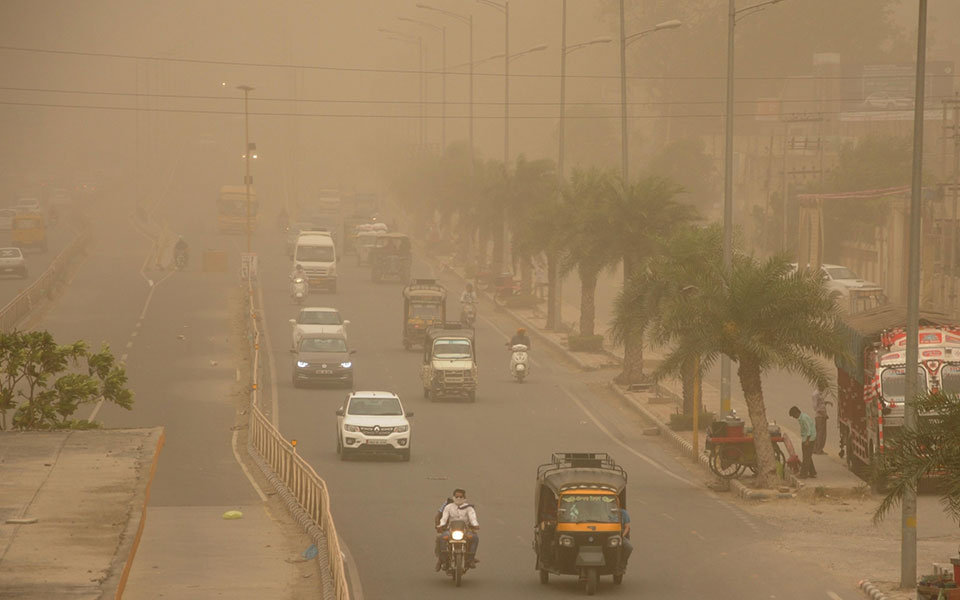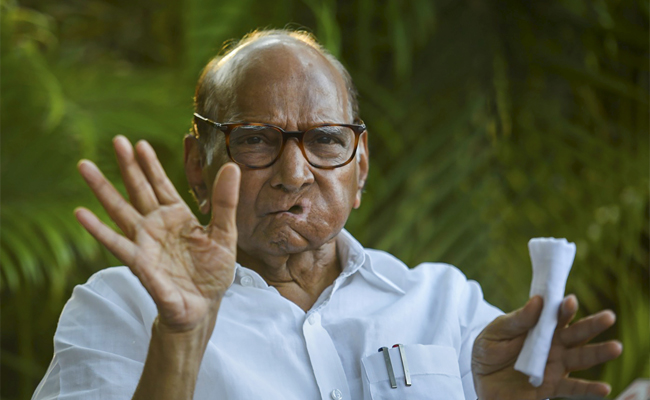New Delhi, June 15: Persistently suffering "severe" air quality for third day in row, the National Capital Region's (NCR) dusty situation is likely to improve from Saturday onwards, Met official said on Friday.
Coarse particles in Delhi's air, due to dust-raising winds from Rajasthan and excessive construction activities around in the NCR, bought the air quality to severe on June 13. Due to this, PM10 or particle with diameter less than 10 microns became the major pollutant and PM2.5 or finer particles the secondary in NCR.
At 3 p.m. on Friday, the PM10 averaged at 717 units, against 765.6 units at same time on Thursday. However, by 5 p.m. on Friday, the levels dropped down by 656 units.
While Delhi and regions around it may start seeing some improvement from Saturday onwards due to change in winds, Rajasthan will get no respite till Tuesday.
"The situation is set to improve in Delhi from Saturday and by Sunday, there will be considerable improvement in air quality as dust will begin settling down," India Meteorological Department scientist Kuldeep Srivastava told IANS.
There are also slight chances of very light rains on Sunday around Delhi, which may improve the situation further, IMD said.
According to private weather agency Skymet, winds are set to chance from currently dust-raising westerly and south-westerly to north-westerly on Saturday which may slightly improve the situation.
"Currently winds from Rajasthan and Balochistan are bringing in dust which are set to change to north-westerly," Skymet Director Mahesh Palawat told IANS.
Meanwhile, the Air Quality Index (AQI) of Delhi saw deteriorating trend, with AQI at 4 pm on Friday was 447 against 431 on Thursday, both severe, on a scale of 0 to 500. However, the prominent pollutant on Friday was PM 10 while on Thursday it was both PM2.5 and PM10.
Delhi Lt. Governor Anuil Baijal on Thursday also barred construction activities and stone crushers around Delhi for three days.
"Dust and excessive construction activities around NCR are the primary reason of such a deterioration of air quality and giving rise to the coarser PM10 as primary pollutant," an scientist at Central Pollution Control Board (CPCB) told IANS.
The scientist however added that there is also considerable presence of finer particle or PM2.5, which arise from vehicles and diesel generator sets.
However, neither the generator sets were barred in Delhi, nor the entry of trucks was stopped, as provisioned under Graded Response Action Plan (GRAP) of Supreme Court appointed Environment Pollution (Prevention and Control) Authority for NCR.
Let the Truth be known. If you read VB and like VB, please be a VB Supporter and Help us deliver the Truth to one and all.
New Delhi: Global crude oil prices rose sharply on Thursday, crossing $83 per barrel, following Iran’s move to shut down the Strait of Hormuz amid escalating tensions in the Middle East.
Oil prices have increased by more than 2 per cent due to concerns over supply disruptions in the region, which is a key route for global energy shipments.
A sustained rise in crude prices could significantly affect India’s import bill. Government estimates indicate that an increase of $1 per barrel in crude oil prices for a full year could raise India’s import bill by around Rs 16,000 crore.
However, government sources said India remains in a relatively comfortable position in the short term. The country currently has crude oil reserves sufficient for about 25 days, along with an additional 25 days’ supply of petroleum products, including shipments already in transit to Indian ports.
India imports nearly 85 per cent of its crude oil requirements from the Middle East, with much of the supply traditionally passing through the Strait of Hormuz, one of the world’s most critical oil transit routes.
Officials said India has strengthened its energy security in recent years by diversifying its sources of crude oil imports. Supplies have increasingly been sourced from countries such as Russia, African nations and the United States, reducing dependence on Gulf routes.
As a result, a portion of India’s oil imports now bypasses the Strait of Hormuz.
India spent about $137 billion on crude oil imports in the financial year ending March 31, 2025. In the current financial year, from April 2025 to January 2026, the country spent approximately $100.4 billion to import 206.3 million tonnes of crude oil.





